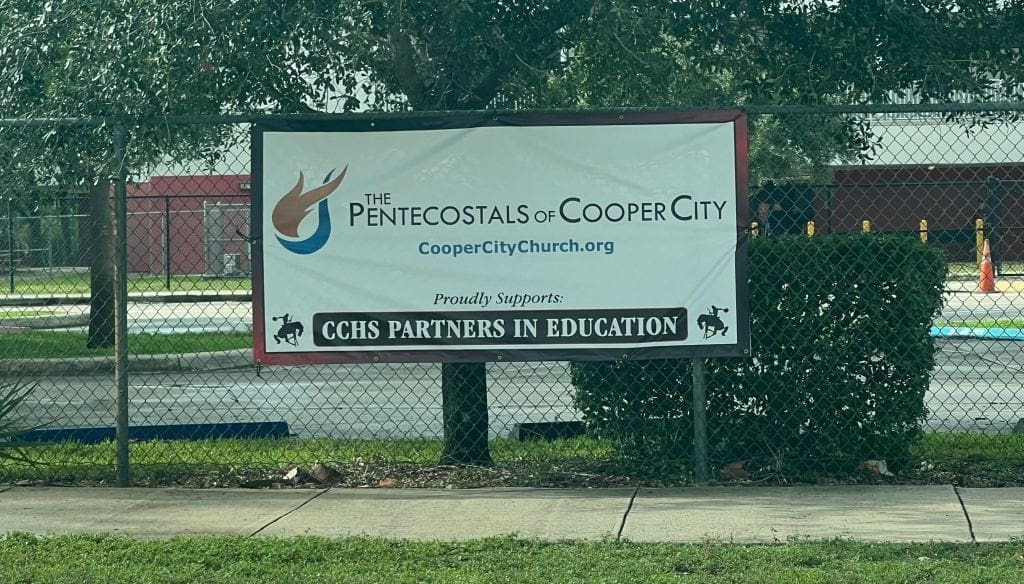Broward County Schools recently became the center of a debate resulting from their stance on school fence banners, drawing criticism from two opposing groups.
In a decision highlighting the complexities of educational partnerships, the Broward School Board faced complaints regarding their policies on school banners. The controversy emerged after restrictions affected signs from both the Pentecostals of Cooper City and a satirical group known as the ‘Church of Satanology,’ founded by local activist Chaz Stevens. This situation intensified when a banner belonging to the Pentecostals of Cooper City was taken down at Cooper City High School.
Rev. Paul Volan of the Pentecostals of Cooper City expressed his dissatisfaction to the school board, noting that the church had engaged in a one-year sponsorship through the district’s Partners in Education program. This agreement permitted them to display a banner on the school fence, demonstrating their support for the local high school. The removal of their sign, as per the pastor, undermined their efforts and financial investment in supporting the school’s activities.
Conversely, Chaz Stevens, a Deerfield Beach activist, established the ‘Church of Satanology’ as a means to critique and satirize religious influences within public spaces. Stevens pointed out the irony in the situation, questioning why certain groups could or could not display their messages. His criticism underscores a broader question about the role of religious or satirical entities in public education settings.
The school board’s restrictions indicate broader policy considerations in managing partnerships and sponsorships within school environments. These policies must balance community engagement with equitable treatment of all groups, whether traditional religious organizations or satirical entities like Stevens’ group.
This dispute over signage reflects larger issues regarding the engagement between educational institutions and community organizations. The Broward School Board’s actions might set a precedent for how similar conflicts are managed in the future, emphasizing the need for clear, consistent policies that provide a balanced approach to diverse viewpoints.
Source: Sun-sentinel








